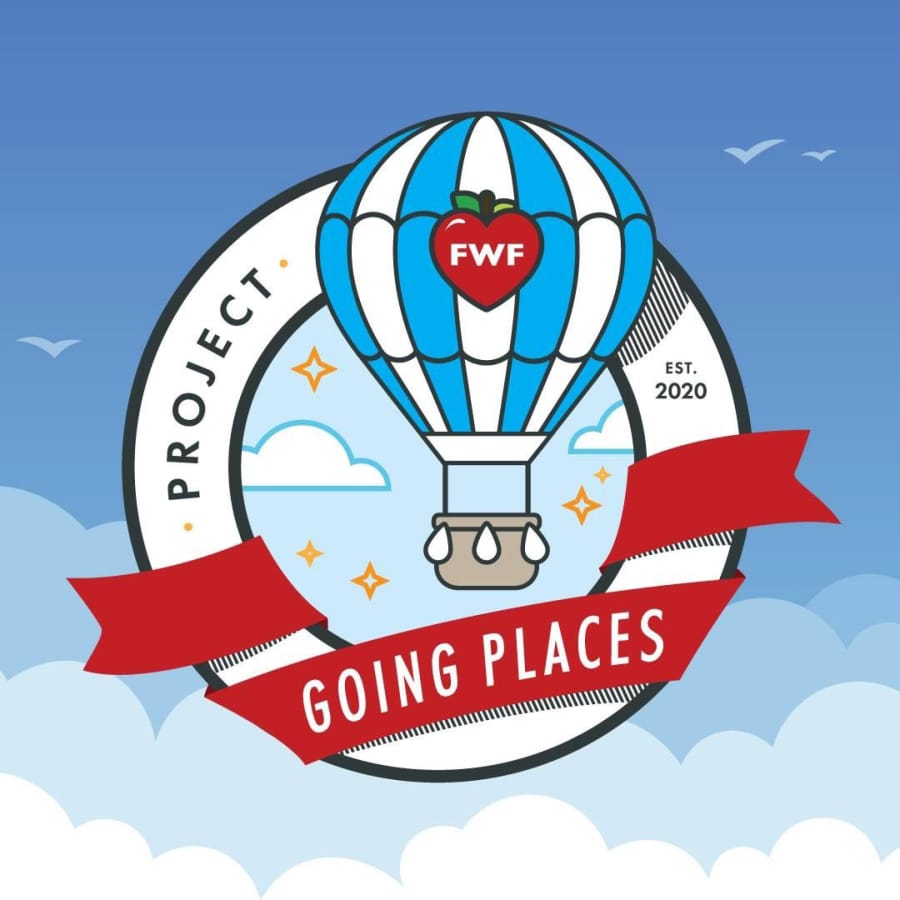When Taira Morin’s minivan broke down near a Jiffy Lube, she had just about given up. She figured the van would be towed, and she would lose her main mode of transportation and the place she slept every night.
“I was at the point where I didn’t know what I was going to do,” said Morin, 29.
She messaged friends on Facebook, and one of them got her in contact with Cherish DesRochers-Vafeados. Her nonprofit Food with Friends recently began addressing minor transportation needs for people experiencing homelessness — whether that means providing a bus pass, gas or, in Morin’s case, a new car battery.
Morin didn’t expect much. She’s faced a lot of disappointment in her life and met plenty of people who say they’ll help and never follow through. When DesRochers-Vafeados showed up holding a new battery right when she said she would, Morin almost couldn’t believe it.
“I mean, it made me cry. I was so thankful,” she said. “It kind of my gave me my confidence and everything back as far as the community and stuff. People are out here actually trying to help rather than looking down on people who are homeless.”
DesRochers-Vafeados returned later that night with a few pizzas that Morin dispersed to other homeless people staying in east Vancouver. She used to live off Northeast 49th Street, so she stays on the east side, the place she calls home.
Morin was among the first to get assistance through Food with Friend’s new grant-funded initiative called Project Going Places. It’s meant to assist people with minor transportation costs.
“There are so many people where this is a huge barrier for them and holding them back,” said DesRochers-Vafeados, who is also a Battle Ground city councilor.
For instance, she met a woman who was stuck at a rest area and needed a new battery and gas.
“That one thing was preventing her from getting to the Social Security office,” DesRochers-Vafeados said.
Another woman was living in her vehicle with expired out-of-state plates and tabs, so Project Going Places covered the costs to have her vehicle registered in Washington.
Food with Friends received a $5,000 grant from Council for the Homeless for Project Going Places and applied for some smaller grants.
A critical need
Kate Budd, executive director of Council for the Homeless, said transportation is one of the top needs among those experiencing homelessness. They often don’t have reliable transportation; those who own cars don’t have the resources to keep up with maintenance and repairs.
“So often people are living in their car and using it to get around, which just puts additional wear and tear on the vehicle,” Budd said.
Some people may also have a disability that makes using the bus challenging. Either way, having reliable transportation is often a catalyst to services that move people out of homelessness. Budd said Project Going Places complements the work of her organization in that it can help people get to the Housing Solutions Center in central Vancouver.
“When you’re experiencing homelessness and not able to access the resources available, it just makes everything more difficult and hopeless,” Budd said. “Sometimes it just takes a new battery to get someone up and going again.”
The Food with Friends’ website has an online application where applicants explain what assistance they need and answer voluntary questions such as whether they’ve completed a housing assessment.
Seeking partners
DesRochers-Vafeados said Orchards Auto License and Costless Auto Parts have helped her diagnose problems and pencil out costs. While Project Going Places isn’t intended to cover major, costly repairs, DesRochers-Vafeados said she’s interested in working with a local auto repair shop that could offer a discount.
When Morin’s parents gave her their 1999 Dodge minivan, she only expected to get a few months’ use out of it. She’s surprised it’s lasted more than a year. One time, the van broke down in the parking lot near her storage unit, and the owners gave her 24 hours to move the vehicle. Morin and a pair of friends waited until 3 a.m., when there was no traffic, and pushed it down the road to a different parking lot.
On Monday, Morin’s car was again broken down because the starter went out. Morin said she didn’t ask for more help from Project Going Places because she didn’t want to be greedy. Instead, her parents sent her money to buy a starter, and a friend drove her to go pick up the part. After the starter is replaced, Morin plans to drive to a temp agency and find work.
“My main thing is trying to find a job right now. That way I’m able to, of course, pay for rent,” she said.
Morin said small bits of support — not necessarily something as costly as a battery or a starter — can be valuable to someone experiencing homelessness. A sandwich, a conversation, something that makes people feel as though they’re not being looked down upon.
“That’d be cool,” she said.




